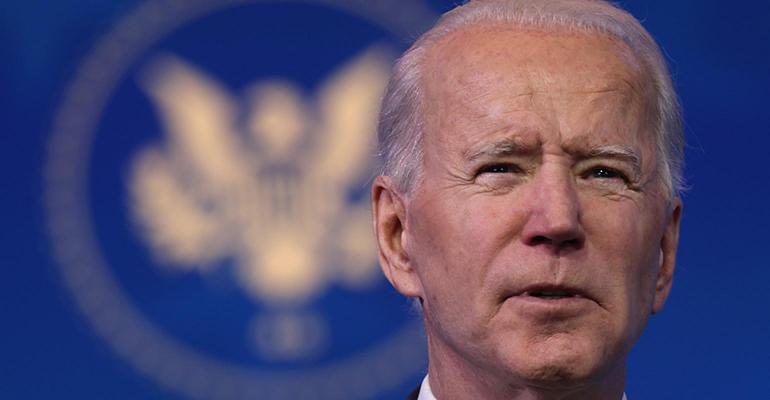President Joe Biden introduced on Tuesday multiple executive actions to address immigration reform throughout the country, and to coincide with his previously announced plan to create a path to citizenship for 11 million undocumented immigrants. This second batch of executive actions largely undoes much of the Trump administration’s tighter immigration policies, and includes an executive order that would reestablish a Task Force on New Americans and require agencies to “conduct a top-to-bottom review of recent regulations, policies, and guidance” around barriers to the current legal immigration system, along with reviewing the current backlog of citizenship applications.
This executive order will also review Trump-era restrictions on immigration that made it more challenging for people to legally immigrate to the United States, including the controversial “public charge rule” which made it harder for immigrants to get green cards if they rely on public safety nets like food stamps. Critics had likened this Trump administration-era rule to a wealth requirement.
Although this executive order is initially designed to review rather than to get rid of these immigration regulations like the public charge rule, it does rescind a Trump-era memorandum that required family sponsors to repay the government if their relatives in America received public benefits.
“The prior administration enacted hundreds of policies that run counter to our history and undermine America’s character as a land of opportunity that is open and welcoming to all who come here seeking protection and opportunity,” the Biden administration said in a press release.
Other executive actions on immigration reform taken by the Biden on Tuesday include:
- A plan to develop a strategy to address irregular migration policies across the U.S.-Mexico border, including plans to collaborate with foreign leaders on tackling challenges in neighboring countries that cause immigrants to seek a new home, and a strategy to protect asylum-seekers and refugees.
- The creation of a task force to reunite the hundreds of families that were separated at the border.
"These actions are centered on the basic premise that our country is safer, stronger and more prosperous with a fair, safe and orderly immigration system,” White House press secretary Jen Psaki said in a press conference Tuesday, adding that reversing the previous administration's policies is “not going to happen overnight.”
These executive orders were enacted on the heels of Biden’s first wave of immigration executive actions during his first week in office. Biden introduced the U.S. Citizenship Act of 2021, which would create a legal path to citizenship for 11 million illegal immigrants currently in the country. Biden also restored the Deferred Action for Childhood Arrivals, or DACA, policy, reversed the Trump travel ban, and halted construction of the wall along the U.S.-Mexico border.
With undocumented immigrants encompassing approximately 10% of the foodservice industry workforce, the restaurant industry has long been a proponent of progressive immigration reform. During Biden’s previous wave of immigration-related executive actions, the National Restaurant Association released a statement of support, encouraging Congress and the administration to “provide a pathway for legalization” for the workers that make up the “cornerstones of our communities.”
Contact Joanna Fantozzi at [email protected]
Follow her on Twitter: @joannafantozzi





